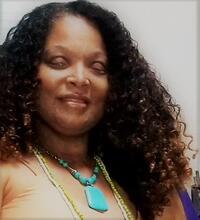Kenya Loudd
Kenya J. Loudd graduated with high honors with a B.A. in Interdisciplinary Studies from the University of Texas at Arlington in May of 2020 with combined concentrations in African American Studies, Disability Studies and Leadership Studies. During her time at UT Arlington, she identified and expanded her research aspirations by participating in both the Honors College and the McNairs Research Programs. It was through this undergraduate research where she identified her profound interest in the intersections of race and disability.
Through her research, Kenya has been able to present at several conferences, and has been the recipient of the Terry Kershaw essay award, the UT Arlington Exemplary Student Award the 2020 Ford Foundation Pre Doctoral Fellowship and a host of other awards and honors. To add to her array of academic accomplishments, Kenya has also participated in hundreds of hours of community and nonprofit service aimed at creating equitable experiences for underserved and underrepresented communities and is the co-founder of the non-profit organization #BELikeAGirl.
As a Graduate student at Yale University, she is pursuing a combined Ph.D. in the History of Science/History of Medicine and African American Studies. Also, she is the recipient of both the Dean’s Emerging Scholar’s and the Race, Indigeneity and Transnational Migration Fellowships and serves as an advisor for undergraduate research, and, as a member of the Diversity Committee. As a African American woman who is legally blind, Kenya desires to use her research, as well as her own personal experiences, to expand the body of knowledge and exposure to longstanding oppressed and marginalize groups.
Building on the research that she began as an undergrad, her research explores, on a large scale, experiences of people of African descent with disabilities within the United States from the late 19th century to present. In addition, she examines how systematic and institutional discrimination has played a long lasting role in these experiences forming an interlocking matrix of oppression. Through the use of archival documents, primary sources and the collection of oral narratives, Kenya wishes to investigate histories that have long been ignored by both the African American and Disability Studies communities while also challenging the use of terms such as “asylum”, “inmate” and “feeble-minded”.
